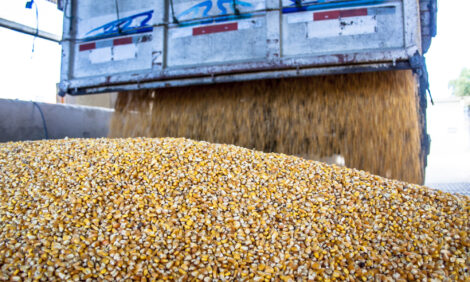



WVPAC 2015: Vaccinations Key to Transformation of Small-Scale Poultry Systems
SOUTH AFRICA - Although small-scale poultry production might seem like a waste of time to outsiders, it is a critical source of income and nutrition for poor households in Africa, Asia, Latin America and the South Pacific, reports Glenneis Kriel.According to Dr Rosa Costa, from the KYEEMA Foundation in Mozambique, more than 80 per cent of the world’s poultry stock is kept in small numbers. Even so these countries only accounted for about 6 per cent of world production.
So what should be done to unlock the full potential of these small-scale production systems?
Dr Costa told delegates at the Congress of the World Veterinary Poultry Association in Cape Town that most interventions so far either focussed on health, such as Newcastle disease vaccinations and anti-parasitic treatments, housing using locally available materials, feeding strategies for different age groups and/or breeding strategies to improve the genetic potential of the flock.
Interventions that focussed on the vaccination of chickens against Newcastle disease proved the most successful. “A study by the Food and Agriculture Organisation of the United Nations found that vaccinating backyard chickens in Africa against Newcastle disease reduced mortalities by up to 80 per cent and increased farmer earnings by 18 cents to US $23,” she said.
Newcastle disease is highly contagious and can wipe out a whole flock of birds in only a few days. Symptoms are dependent on the strain of virus responsible for an outbreak, ranging from respiratory symptoms, such as gasping, coughing and sneezing to nervous symptoms, such as tremors, paralysis and spasms to digestive symptoms, such as diarrhoea.
The disease might also cause a drop in egg production and eggs might become an abnormal shape or colour and have watery albumen.
The study found that feed supplementation, anti-parasitic treatment and improved housing were only effective when used in conjunction with Newcastle vaccination. It recommended other vaccinations, such as Fowl Pox and Infectious Bronchitis.
Another study by the Australian Centre for Agricultural Research estimated the benefit of controlling Newcastle disease in Malaysia, Vietnam and the Philippines at 211 million USD, with an internal rate of return of 31 per cent.
Based on this Dr Costa estimated the accrued benefit of vaccinating 10 per cent of the 1.5 billion birds across Africa between 2003 and 2010 at 131 million USD.
She said that most of the projects that introduced new breeds encountered problems and that efforts to turn production into semi-intensive systems failed.
“Villagers cannot afford the semi-intensive systems, because of the high price of feed and high bird mortality rates. Some are also cautious of using housing, saying that it increased problems with predators, such as snakes. The aim of an intervention, should therefore rather be to strengthen a production system, than to try and fully transform it,” Dr Costa said.








